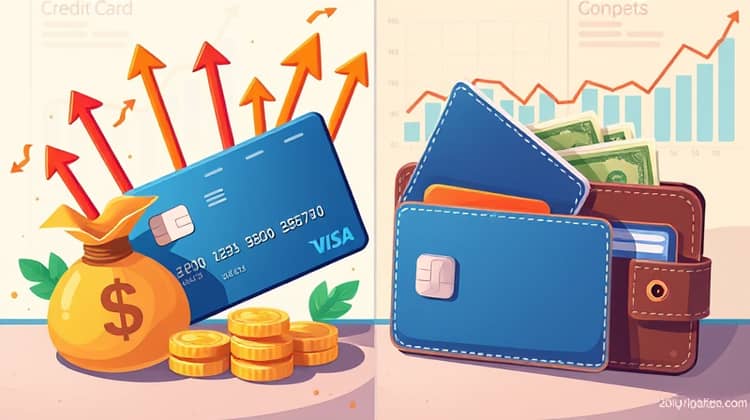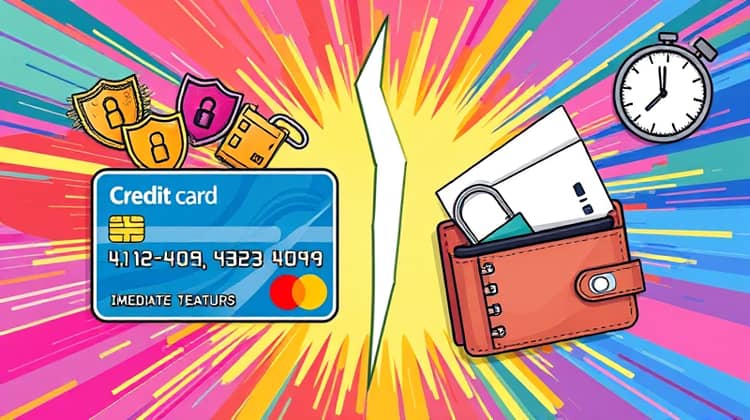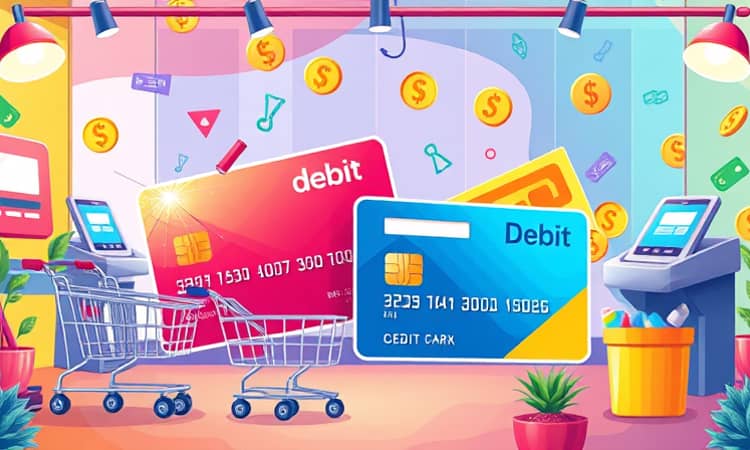In the modern world of finance, understanding the differences between credit cards and debit cards is crucial for managing money effectively. Both types of cards offer convenience and ease of transactions, but they serve different purposes and come with their own set of pros and cons. This article aims to break down the key distinctions between credit and debit cards, their respective advantages and disadvantages, and when it might be best to use each one.
Credit cards allow individuals to borrow funds from a pre-approved limit for purchases, whereas debit cards enable individuals to spend money they have in their bank account. This fundamental difference affects not only how users manage their budgets but also how they build credit and handle financial emergencies. Clearly understanding these differences ensures that cardholders make informed choices that align with their financial goals.
What Is a Credit Card?

A credit card is a financial tool that allows users to borrow money from a lender to make purchases. Users can spend up to a predetermined limit, and they are expected to pay back the borrowed amount, typically by a due date, often with interest if they do not pay it off in full. Credit cards can be useful for managing cash flow, especially when making larger purchases or during emergencies.
Additionally, using a credit card responsibly can help individuals build a positive credit history, which is crucial for obtaining loans or mortgages in the future. However, if mismanaged, credit cards can lead to debt accumulation, making it essential for users to understand their spending habits and repayment capabilities.
What Is a Debit Card?

A debit card, on the other hand, provides direct access to funds in a user's bank account. When users make a purchase with a debit card, the money is immediately deducted from their checking account. This distinct feature helps individuals manage their finances by limiting spending to actual funds available, thus reducing the likelihood of debt accumulation.
Debit cards are widely accepted for everyday transactions and can also be used at ATMs for cash withdrawals. They provide a convenient way to access money without the complications of credit, but do not help build a credit history, which can be a disadvantage for those looking to establish or improve their credit score.
Key Differences Between Credit Cards and Debit Cards

Understanding the key differences between credit and debit cards is essential for effective money management. One significant difference lies in how funds are accessed: credit cards allow users to borrow money, while debit cards provide direct access to existing funds. This distinction greatly influences spending behavior and financial planning.
Another notable difference is the impact on credit scores. Credit card usage and timely repayments can positively impact an individual's credit score, whereas debit card transactions have no bearing on credit history. This means that individuals aiming to improve their credit scores may want to consider incorporating credit cards into their financial strategy.
Lastly, credit cards often come with perks such as rewards points, cashback, and travel benefits, which can enhance the overall user experience. Conversely, debit cards usually offer fewer rewards, pointing toward their fundamental role in managing existing funds rather than incentivizing borrowing.
- Credit cards can encourage overspending, while debit cards promote careful spending.
- Using credit cards can enhance your credit score when managed well, while debit cards do not affect it.
- Credit cards often come with rewards and benefits, unlike debit cards.
In summary, both credit and debit cards have distinct roles in managing personal finances, and individuals must choose wisely based on their financial situation and goals.
Credit Cards vs. Debit Cards: Pros and Cons

Each card type presents unique advantages and disadvantages that cater to different financial needs and preferences. Understanding these pros and cons can guide users to make more informed decisions when selecting between credit and debit cards.
Ultimately, the right choice depends on individual spending habits, financial goals, and the ability to manage payments responsibly.
Pros of Credit Cards
Credit cards offer several benefits that make them appealing to consumers. One major advantage is the ability to build credit history, which is essential for future borrowing. When used correctly, credit cards can enhance an individual's credit score and open doors to better financial opportunities.
- Rewards programs for cash back, travel, and discounts.
- Emergency funds in case of unexpected expenses.
- Consumer protection policies and fraud liability coverage.
These advantages highlight credit cards' potential to enhance purchasing power and create financial opportunities when managed smartly.
Cons of Credit Cards
While credit cards have their benefits, they also come with notable downsides. One significant risk is the potential for accumulating debt if users fail to pay off their monthly balances, leading to high-interest charges that can spiral out of control.
Furthermore, some credit cards may have annual fees that add to the cost of borrowing, which could be avoided with debit cards.
- High-interest rates if balances are not paid in full.
- The risk of overspending and falling into debt.
- Annual fees associated with specific credit cards.
Understanding these cons is crucial in order to responsibly manage credit card usage and mitigate potential financial pitfalls.
Pros of Debit Cards
Debit cards come with their own set of advantages, primarily emphasizing fiscal responsibility. Since they draw directly from the user's bank account, they provide a straightforward method for managing expenses without risking debt. Furthermore, debit cards do not incur interest rates, as there are no borrowed funds involved.
Another perk is that users can easily access their funds through ATMs, making debit cards a convenient option for cash withdrawals and everyday purchases.
- Easy and immediate access to funds.
- No risk of accumulating debt or interest charges.
- Simple budgeting by spending only what you have.
These pros make debit cards an appealing choice for individuals who prefer a simplistic approach to spending without the complexities of credit.
Cons of Debit Cards
Despite their advantages, debit cards are not without downsides. One significant drawback is that using a debit card does not help build a credit history, making it challenging for users to establish a strong credit profile for future financial needs.
In addition, if a debit card is compromised or stolen, unauthorized transactions could lead to immediate financial loss, posing a risk to users while they attempt to recover the funds.
- Limited to available funds in the bank account.
- No credit history benefits for future borrowing.
- Vulnerability to fraud without adequate protection measures.
Awareness of these cons will help users make informed decisions regarding their need for credit versus the safety and straightforwardness of using debit cards.
When to Use a Credit Card

Credit cards can be particularly beneficial for specific financial situations. They are an excellent option for making larger purchases, especially when the user has a plan to pay off the balance quickly, allowing them to take advantage of rewards and financial flexibility.
Also, credit cards are advisable when traveling, as they often include additional benefits such as travel insurance, loss protection, and fraud liability coverage.
- To take advantage of rewards, cash back, or points.
- In emergencies when immediate funds are required.
- When making significant purchases to avoid immediate payment.
Recognizing these scenarios can guide individuals to maximize the benefits of credit cards without falling into debt.
When to Use a Debit Card

Debit cards are ideal for day-to-day expenses and small purchases since they allow users to manage their budget effectively. Users have the advantage of ensuring they do not overspend, given that funds are limited to what is available in the bank account.
Additionally, using a debit card for ATM withdrawals can provide convenient cash access without putting oneself at risk of accruing debt, making them a reliable option for those who want to maintain tighter control over their spending.
Safety and Fraud Protection

Both credit and debit cards come with safety features, but they serve different purposes in terms of fraud protection. Credit cards generally offer stronger consumer protection policies due to the nature of the borrowing arrangement, which often means users aren't responsible for fraudulent charges if reported promptly.
Conversely, debit cards can expose users to immediate risks, as funds are withdrawn directly from their accounts. In cases of fraud, it may take longer to recover stolen funds, and users may bear more responsibility for unauthorized transactions. While both cards may offer some level of fraud protection, understanding these differences is critical for making informed financial decisions.














